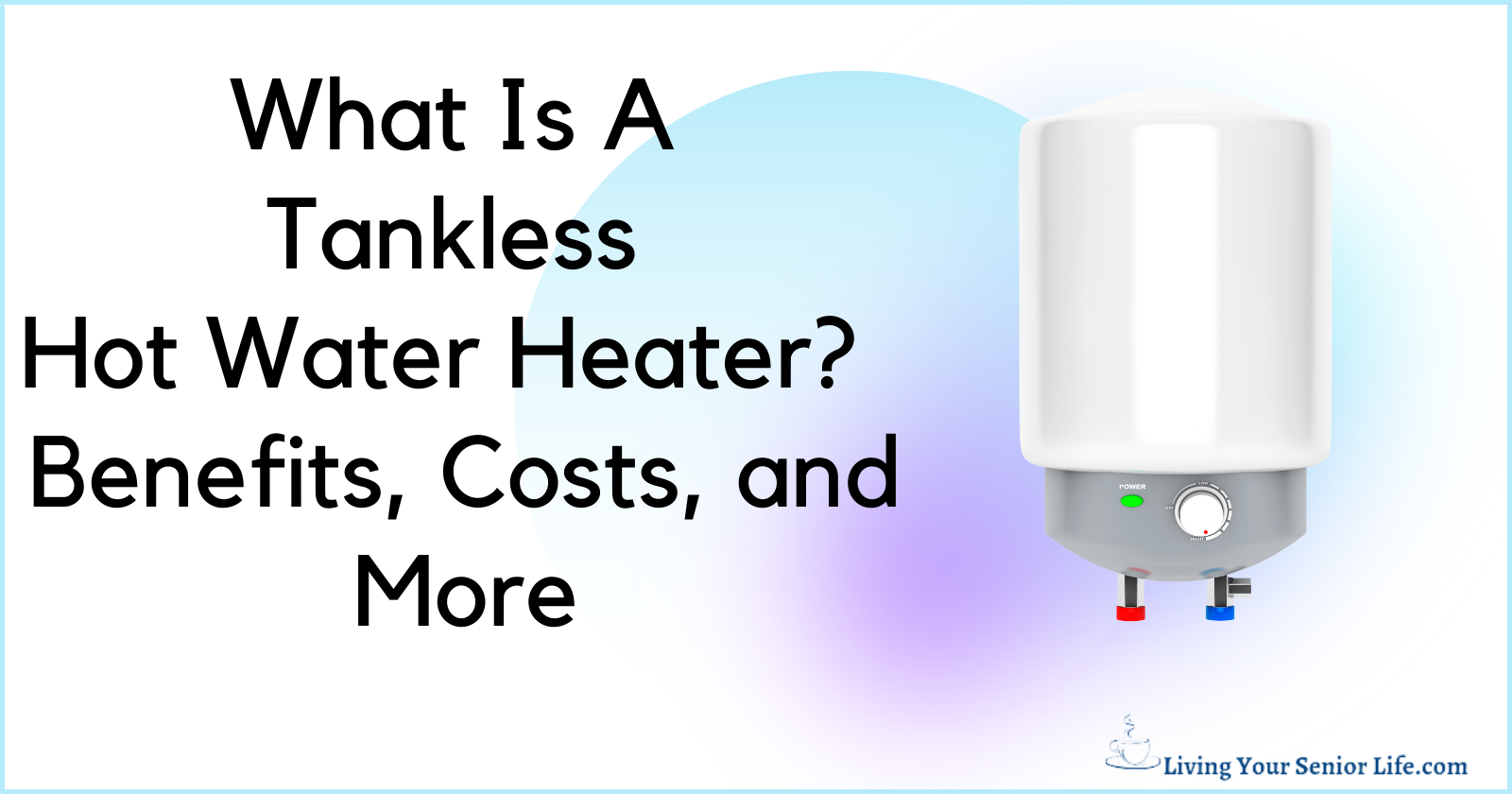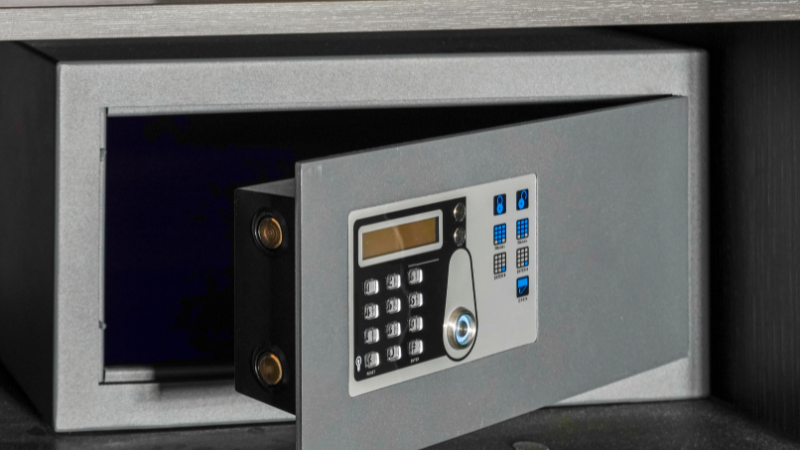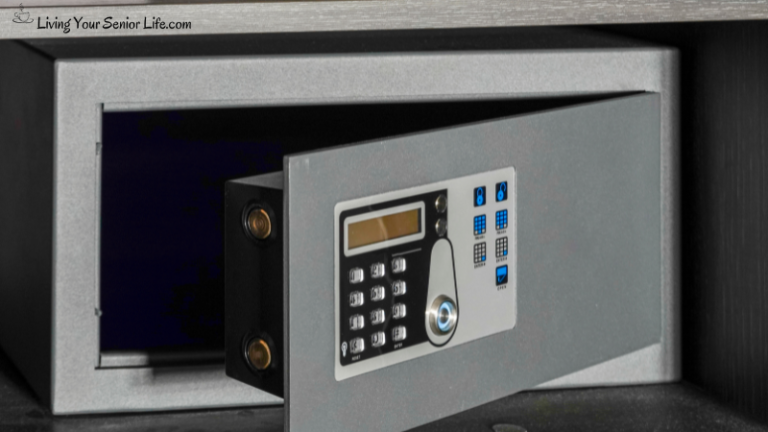If you’re tired of your traditional water heater taking up too much space, making noise, and potentially leaking, a tankless water heater might be the solution you need. In this article, we’ll explore what a tankless hot water heater is and why it might be an excellent option for you. We’ll go over the benefits, what to look for when purchasing one, installation, and maintenance.
Key Takeaways:
If you’re looking for a more energy-efficient and space-saving option for heating your water, a tankless hot water heater might be the solution for you. Here are some key takeaways to keep in mind:
- Tankless water heaters provide hot water on demand, without the need for a storage tank.
- They can be more energy-efficient than traditional water heaters, saving you money on your utility bills.
- Tankless water heaters have a longer lifespan than traditional water heaters, lasting up to 20 years or more.
- They take up less space than traditional water heaters, making them a great option for small homes or apartments.
- Tankless water heaters can provide an endless supply of hot water, so you never have to worry about running out during a shower or doing laundry.
- Installation costs for tankless water heaters can be higher than traditional water heaters, but the long-term savings can make up for the initial investment.
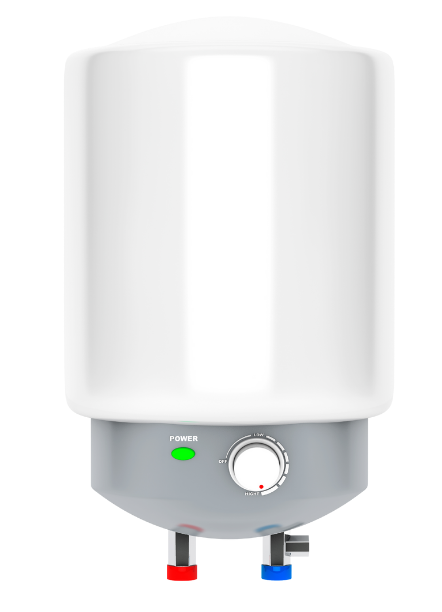
What Is A Tankless Water Heater?
A Tankless Water Heater is a household appliance that provides hot water on demand. It heats water only when you need it, unlike conventional water heaters that store hot water in a tank. Tankless Water Heaters are also known as “on-demand” or “instantaneous” water heaters.
When you turn on a faucet, shower, or appliance like a washing machine, cold water enters the tankless water heater via a pipe. The water is heated as it flows through a heat exchanger, and then it flows out of the faucet, shower, or appliance you turned on. This process happens quickly and continuously, providing a constant flow of hot water.
Tankless Water Heaters are available in both condensing and non-condensing units. They come with self-modulating temperature control and sensors that adjust the temperature rise according to your hot water demands. Some Tankless Water Heaters also have recirculation technology that provides instant hot water. The Uniform Energy Factor (UEF) measures the energy efficiency of Tankless Water Heaters.
The incoming water temperature and hot water demands affect the performance of a Tankless Water Heater. The temperature range of a Tankless Water Heater is typically between 100°F and 140°F, providing lukewarm water if the incoming water temperature is low.
Video: What Is A Tankless Water Heater?
Heating Process
When you turn on a hot water tap in your house, the water flows through the tankless water heater. The heating process begins as the unit heats the water with either a gas burner or electric heating coil. As the water travels through the unit, it is heated instantly, providing you with hot water on demand.
Unlike traditional hot water heaters that store water in a tank and keep it hot until it is needed, tankless water heaters only heat water when it is needed. This on-demand service saves energy and money.
Tankless water heaters are sometimes called “on-demand” because they only start working once there is a demand for hot water, as opposed to tank heaters that store warm water. The heating process begins when a faucet or appliance is turned on, and a flow sensor detects water flow.
Non-Condensing Tankless Water Heaters burn propane or natural gas and use a primary heat exchanger that rapidly heats the water as it flows through the heater. This process creates hot exhaust, which must be vented through stainless-steel flue pipes. While non-condensing tankless water heaters are more affordable, the stainless-steel exhaust system can increase maintenance costs.
Overall, tankless water heaters provide an efficient and effective way to heat water in your home.
What Are The Benefits of a Tankless Water Heater?
If you’re considering upgrading your water heater, you may be wondering if a tankless hot water heater is the right choice for you. Here are some benefits to consider:
Energy
One of the biggest benefits of a tankless water heater is its energy efficiency. Unlike traditional tank-style heaters, tankless models only activate when there’s a need for hot water. This means they don’t waste energy heating water that isn’t being used, which can save you money on your utility bills. In fact, tankless water heaters use about a third less energy than tank-style heaters to heat the same amount of water. This feature is especially useful in colder climates where energy costs are already high.
Tankless water heaters can also be an excellent choice for smaller households because tankless models use only approximately 30 – 170 kWh per month, depending on the number of occupants and how much hot water is used. In comparison, storage tank water heaters use up to 300 kWh per month. You can save more money on your monthly utility bills with tankless models, especially if you have low hot water usage in your household.
Constant Supply
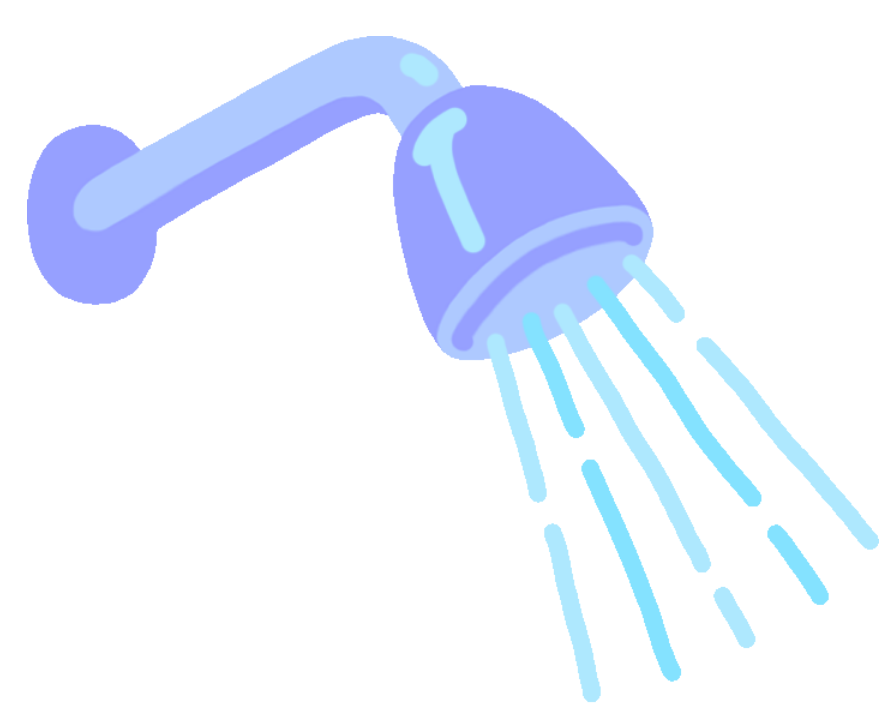
Another benefit of a tankless water heater is its ability to provide a constant supply of hot water. With a traditional storage-type heater, you may run out of hot water if multiple people are using it at the same time. However, with a tankless model, you don’t have to worry about running out of hot water because it heats the water as you need it.
Space
Tankless water heaters are also much more compact than traditional tank-style heaters. This makes installation much easier, as there’s no need to worry about running pipes from the heating unit to the location of the needs. Almost any area can be used with a tankless model because it doesn’t have to be mounted to a permanent wall or structure. For instance, it can be mounted on a cabinet next to your kitchen sink or a wall inside the garage.
Safety
Another benefit of a tankless hot water heater is its safety. Unlike traditional tank-style heaters, tankless models don’t store either cold water or hot water, which reduces the risk of flooding. Additionally, because there’s no tank, there’s no need to worry about pressure buildup or the tank exploding. Some tankless water heaters are natural gas-powered, so there is technically a risk of a carbon monoxide leak, but this can usually be avoided as long as you schedule regular maintenance.
Life Expectancy
When it comes to lifespan, tankless water heaters have a longer lifespan than traditional storage heaters. While traditional storage heaters can last anywhere from 8-15 years, tankless water heaters, when installed properly and maintained, generally last 15-20 years due to their simple design and lack of moving parts. This means you’ll save money in the long run by not having to replace your water heater as often.
Less Noise
Finally, tankless water heaters are much quieter than traditional tank-style heaters. While traditional systems make loud banging sounds as the water is heated, tankless models only make a soft noise with the water rushing through the unit. This noise has been compared to the sound of an electric can opener or a computer fan.
As you can see, tankless water heaters have many benefits, such as saving space, money, and energy. They also help the environment by reducing your carbon footprint, which can be an advantage or disadvantage depending on how you look at it.
What Are The Cons of A Tankless Water Heater?
If you are considering a tankless hot water heater, it is important to be aware of some of the potential drawbacks. Here are some cons to keep in mind:
- Upfront costs and installation for a tankless unit are generally more expensive than traditional tank-style water heaters.
- Inconsistent water temperature may occur when multiple outlets are in use, leading to a “cold water sandwich” effect.
- Achieving a lukewarm temperature with a tankless water heater can be challenging.
- During a power outage, there may be no access to hot water due to the lack of standby heat loss or standby energy losses that are present in traditional tank-style water heaters.
While these cons may be significant, they should not necessarily discourage you from considering a tankless water heater. It is important to weigh the pros and cons and determine what is best for your individual circumstances.
What To Look For When Shopping For A Tankless Water Heater
When shopping for a tankless water heater, there are several important features to consider. These features include the type of fuel, energy factor rating, vented vs ventless, warranty, and gallons per minute.
Type of Fuel
Firstly, you need to decide on the type of fuel for your tankless water heater. You can choose between electric, gas, or propane models. Natural gas tankless water heaters have been traditionally more energy-efficient than their counterparts, but the efficiency usually only lasts for a while before it starts declining. There are electric models with 98+% efficiencies, which means they’re more cost-effective, last longer, and don’t require as much maintenance. In addition, gas prices change drastically from month to month, making them unpredictable, whereas electricity costs vary less often, so its value remains constant even when the fuel marketplace is unstable.
Energy Factor Rating
The energy factor rating is another important feature to consider. The higher the energy factor rating, the more energy-efficient the tankless water heater will be. This means that it will use less energy to heat the same amount of water, which can save you money on your energy bills.
Vented vs Ventless
You may also want to consider whether you want a vented or ventless model. A ventless model doesn’t require a vent, which can save you some installation costs. However, vented models are usually more efficient and have a longer lifespan.
Warranty
When purchasing a tankless hot water heater, you want to make sure that you are covered by a warranty. You should inquire about what the warranty covers and what it doesn’t, how long the warranty is good for, and what can invalidate the warranty. It’s always good to know upfront what will be required to make a claim on the warranty. Also, if there is a place to register the tank with the manufacturer, be sure to do so.
Gallons Per Minute
Finally, you need to determine how many gallons per minute (GPM) you will require. Generally speaking, the higher GPM you get, the more expensive it will be. You can use the table below as a reference to determine the appropriate size of tankless water heater for your household based on the number of family members.
These figures are for reference only. Several important factors like inflow water temperature and acute hot water needs determine the exact size of the tankless water heater you need.
| Number Of Family Members: | Gas Tankless Heater Size (GPM) | Electric Tankless Heater Size (kW) |
|---|---|---|
| What size tankless water heater for a family of 2? | 6-8 GPM | 10-18 kW |
| What size tankless water heater for a family of 3? | 7-9 GPM | 15-23 kW |
| What size tankless water heater for a family of 4? | 8-10 GPM | 20-28 kW |
| What size tankless water heater for a family of 5? | 9-11 GPM | 25-34 kW |
| What size tankless water heater for a family of 6? | 11+ GPM | 34+ kW |
Multiple Tanks
If you have a large home or many occupants, you may want to consider installing multiple tanks. This will guarantee that there is enough hot water for all the showers, appliances, and taps. By having multiple tanks, you can also distribute the load and extend the lifespan of each tank.
Installation
Installing a tankless water heater can be a relatively easy process. However, it is recommended to call a professional with experience in installing either a gas or electric tankless water heater. This is especially important for indoor installations, as proper venting is necessary to avoid any potential hazards.
For outdoor installations, it is important to consider the weather conditions in your area and ensure that the unit is protected from the elements. For point-of-use installations, the unit should be installed as close to the fixture as possible to minimize heat loss and ensure efficient operation.
For vent-free installations, it is important to follow all manufacturer instructions and ensure proper ventilation to avoid any potential hazards.
The typical cost of installation varies from place to place.
What To Look For In An Installer
When looking for a contractor to install your water heater, there are a few things you should do:
- Be sure they have a license.
- Request a quote in writing. This way, there shouldn’t be any discrepancy with the cost. If there are additional charges, they should be agreed upon before any work is done.
- Be sure they will be responsible for pulling any needed permits.
- Ask for references so you can call and see if the job was done to the customer’s liking. However, do be aware that the references you are given will probably not include dissatisfied customers.
- Check with the Better Business Bureau to see if there have been any disputes with the contractor and if they were resolved.
Overall, it is important to hire a qualified professional for installation to ensure that the unit is installed properly and safely. While installation costs may be higher with a tankless system, the long-term savings on energy bills may make it a worthwhile investment.
What Kind of Maintenance Does a Tankless Water Heater Require?
Maintaining a tankless water heater is relatively easy. One aspect of maintenance is draining the water heater to remove sediment buildup. Additionally, descaling the water heater is necessary to remove limescale and mineral deposits from the burner system inside the tankless water heater. If you have hard water or your family uses a lot of hot water, you should descale the unit once a year. With proper maintenance and operation, tankless water heaters can last up to 20 years, which is longer than a standard tank water heater’s lifespan of 10 years or less.
FAQs
Is a Tankless Water Heater Worth the Investment?
Whether a tankless water heater is worth the investment depends on your individual needs and circumstances. While they are more expensive upfront, they can save you money in the long run by reducing your energy bills. They also have a longer lifespan than traditional tank water heaters, and take up less space. However, if you have a large household or high hot water demand, a tankless water heater may not be the best option for you. It is important to consider your hot water usage, budget, and other factors before making a decision.
What is the average cost of a tankless water heater?
The cost of a tankless water heater varies depending on the brand, model, location, and installation costs. On average, a tankless hot water heater costs between $1,500 and $3,000.
Can a tankless water heater provide hot water to multiple fixtures at the same time?
Yes, a tankless water heater can provide hot water to multiple fixtures at the same time, depending on its flow rate and the flow rate requirements of the fixtures. However, it is important to choose the right size and type of tankless water heater for your home’s specific needs to ensure that it can meet the demand for hot water from multiple fixtures simultaneously. Some larger homes may require multiple tankless water heaters to provide hot water to all fixtures at the same time.
Additional Reading
Conclusion
If you are a homeowner looking to save money and reduce your carbon footprint, a tankless water heater is an excellent option. These systems take up less space than traditional heaters, making them ideal for smaller homes or spaces where tanks won’t fit. With a tankless water heater, you’ll never have to worry about running out of hot water, making them a convenient choice for families or those who enjoy long showers. However, it’s important to remember that proper installation and maintenance are crucial to ensuring your system runs smoothly and doesn’t cost you time and money down the line. If you’re in need of a new water heating system, consider a tankless hot water heater for its many benefits.
What is your experience with water heaters? Please comment below.
